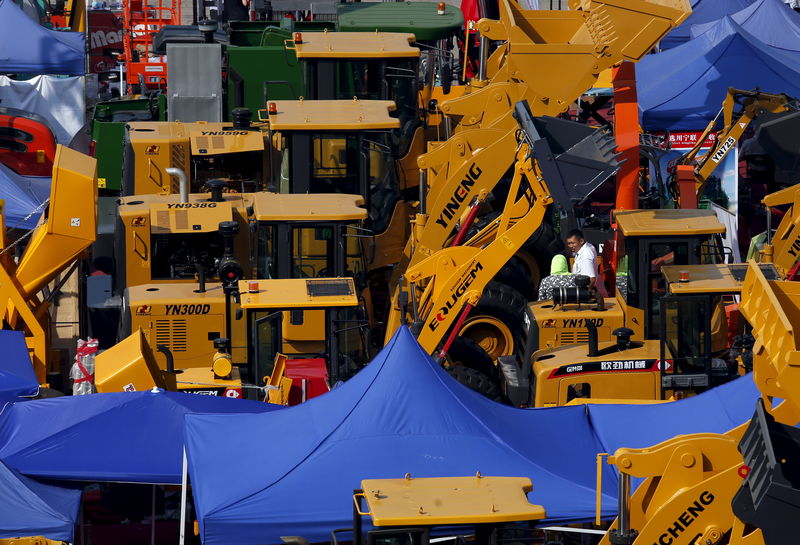By James Pomfret
GUANGZHOU, China (Reuters) - Around two-thirds of exporters at China's largest trade fair expect the slowdown in their markets to persist for at least six months, a Reuters poll has found, with the country expected to announce its weakest economic growth in decades early next week.
Many economists expect data released on Monday to show China's third quarter GDP dipped below 7 percent, the slowest rate since the global financial crisis. A weak showing could possibly prompt Beijing to take more steps to stimulate the economy.
In the vast, booth-filled halls of the biannual Canton Fair on the banks of the Pearl River in Guangzhou this week, a Reuters opinion poll of 103 mostly small to medium sized Chinese manufacturers found they expected orders to rise an average of 1.83 percent this year, though production costs were expected to rise 5.6 percent in the coming 12 months.
"I feel great pressure right now," said Kelvin Qiu, the manager of a factory making heaters and radiators based in northeastern China.
"I have around 40 percent less customers than before and the fair is quieter," he said, comparing activity with the previous Canton fair in April.
The Canton fair draws tens of thousands of Chinese exporters and foreign buyers into one gargantuan venue, and has long been regarded as barometer for an economy that has been the world's biggest exporter since 2009.
The poll's results reflect a gathering pessimism in the export sector, a major driver of the world's second largest economy. A similar Reuters survey in April had been more bullish, as it showed expectations that orders would rise 3.1 percent.
Exports, however, fell 5.5 percent in August and 3.7 percent in September, reflecting anaemic global demand for China-made goods.
Thirty-six percent of exporters polled saying they expected a fresh wave of factory closures.
Thirty-six percent also said they expected an export rebound within 6 months, though 32 percent said the export slowdown would persist for over one year given continued weakness in core markets like Europe and the United States.
Since the previous Canton Fair in April, China's stock market crash and surprise currency depreciation have clouded the economic outlook, with Beijing taking a series of desperate measures - including interest rate cuts and ramped up fiscal spending - to galvanise growth. Its efforts have had limited success so far.
China's dominance as an exporter has been undermined by its previously strengthening currency, soaring labour costs, and a strategic shift by the authorities away from an excessive reliance on exports to domestic consumption.
A mild devaluation of the yuan in August was seen by some Chinese exporters as providing some respite, as their price competitiveness had been eroded during the past few years.
Thirty-two percent polled said their orders had increased as a result, though 56 percent said there was no impact, and 12 percent said exports continued to fall.
"I believe that in the next six months the renminbi (yuan) rate won't fluctuate that much," said Calvin Guan who was sat beside a booth stacked with hairdryers and other appliances.
"Following the depreciation of the yuan, in the next half year, I still have faith in this industry."
Many exporters at the fair said they hoped the yuan would weaken further from the current 6.34 per dollar level.
Exporters polled said they would start to lose money if the yuan recovered again to 6.1 per dollar.

Given weak global demand, some foreign buyers at the fair said they were able to squeeze lower prices from Chinese factories. The poll showed 65 percent of exporters cut their prices this year, by an average of 4.6 percent, to keep the orders flowing and business ticking over.